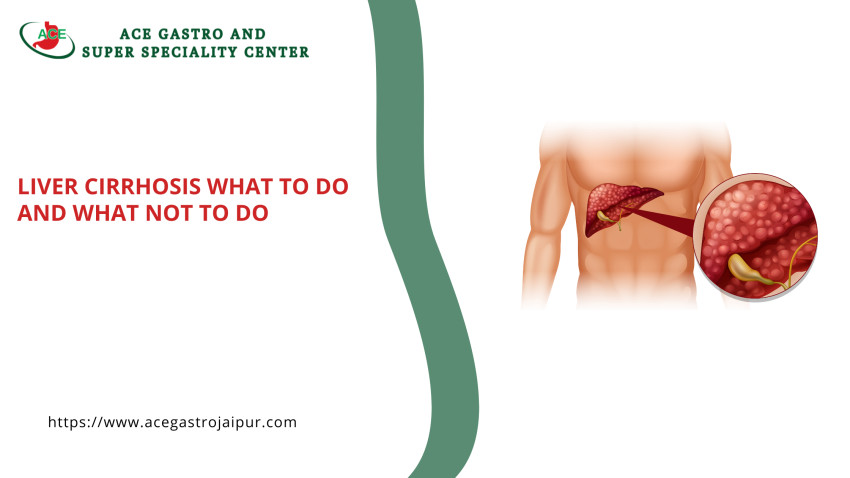
What is Liver Cirrhosis?
Liver cirrhosis is like a traffic jam on a busy highway, but in your liver. The liver, our body's superhero, gets scarred and hardened, hindering its vital functions. This can happen due to various reasons, impacting your overall health.
Causes and Risk Factors
Liver cirrhosis is a progressive condition characterized by the replacement of healthy liver tissue with scar tissue. There are various causes and risk factors associated with the development of liver cirrhosis. Some of the primary contributors include:
Chronic Alcohol Abuse:
- Heavy and prolonged alcohol consumption is a leading cause of cirrhosis. The liver metabolizes alcohol, and excessive intake can lead to inflammation and scarring over time.
Chronic Viral Hepatitis:
- Chronic infection with hepatitis B or C viruses can cause persistent inflammation in the liver, eventually leading to cirrhosis if left untreated.
Non-Alcoholic Fatty Liver Disease (NAFLD):
- NAFLD is characterized by the accumulation of fat in the liver. Over time, this can progress to non-alcoholic steatohepatitis (NASH) and, ultimately, cirrhosis.
Autoimmune Hepatitis:
- The immune system mistakenly attacks the liver cells, causing inflammation and potential scarring. This autoimmune response can contribute to cirrhosis.
Hemochromatosis:
- This genetic disorder leads to an excessive accumulation of iron in the liver and other organs, causing damage and potentially progressing to cirrhosis.
Wilson's Disease:
- Another genetic disorder, Wilson's disease, results in the buildup of copper in the liver and other organs. If not treated, it can lead to cirrhosis.
Primary Biliary Cirrhosis (PBC) and Primary Sclerosing Cholangitis (PSC):
- These are autoimmune conditions that primarily affect the bile ducts in the liver. Over time, they can lead to cirrhosis.
Cystic Fibrosis:
- People with cystic fibrosis may develop liver cirrhosis due to the buildup of thick, sticky mucus that can block the bile ducts.
Genetic Disorders:
- Certain genetic conditions, such as glycogen storage diseases and Alagille syndrome, can contribute to the development of cirrhosis.
Repeatedly Damaging Medications:
- Long-term use of certain medications, such as methotrexate or isoniazid, can contribute to liver damage and cirrhosis.
Risk Factors:
- Age and Gender: Cirrhosis is more common in older adults, and men tend to be at a higher risk than women.
- Obesity: Obesity, especially when associated with insulin resistance and metabolic syndrome, increases the risk of developing NAFLD and subsequent cirrhosis.
- Diabetes: Uncontrolled diabetes is a risk factor for liver cirrhosis, particularly in the context of NAFLD.
- Smoking: Smoking has been associated with an increased risk of liver cirrhosis, especially in individuals with hepatitis C.
- HIV Infection: Co-infection with HIV and hepatitis viruses can accelerate the progression to cirrhosis.
Treatments for Liver Cirrhosis:
There are many treatments available for liver cirrhosis, but the best approach depends on the specific symptoms and severity of the disease. Some common treatments include dietary changes, medication therapy, and surgery.
- Dietary changes can help reduce inflammation and improve blood flow to the liver.
- Medication therapy may include drugs that help improve blood flow or reduce inflammation in the liver.
- Surgery may be necessary to remove diseased or damaged sections of the liver.
Overall, treatment for liver cirrhosis focuses on improving overall health and preventing further damage to the organ.
Liver cirrhosis is a serious medical condition that can lead to death if not treated. It is caused by the accumulation of scar tissue and toxins in the liver over time. The symptoms of liver cirrhosis vary from person to person. If left untreated, liver cirrhosis can progress to cirrhosis of the brain and death. Early diagnosis and treatment are essential for recovery and survival.
Get Liver Cirrhosis Treatment in Jaipur
Looking for advanced liver cirrhosis treatment in Jaipur?
Having liver cirrhosis issues then must book an appointment with Dr. Sushil Kumar Jain, He is most trusted and renowned gastroenterologist in Jaipur, city. Dr. Sushil Kumar Jain has more than 13+ years of experience and treating best liver and gastro related disease at ACE Gastro Super-Speciality Clinic. Book an appointment now at 94620 67445.





